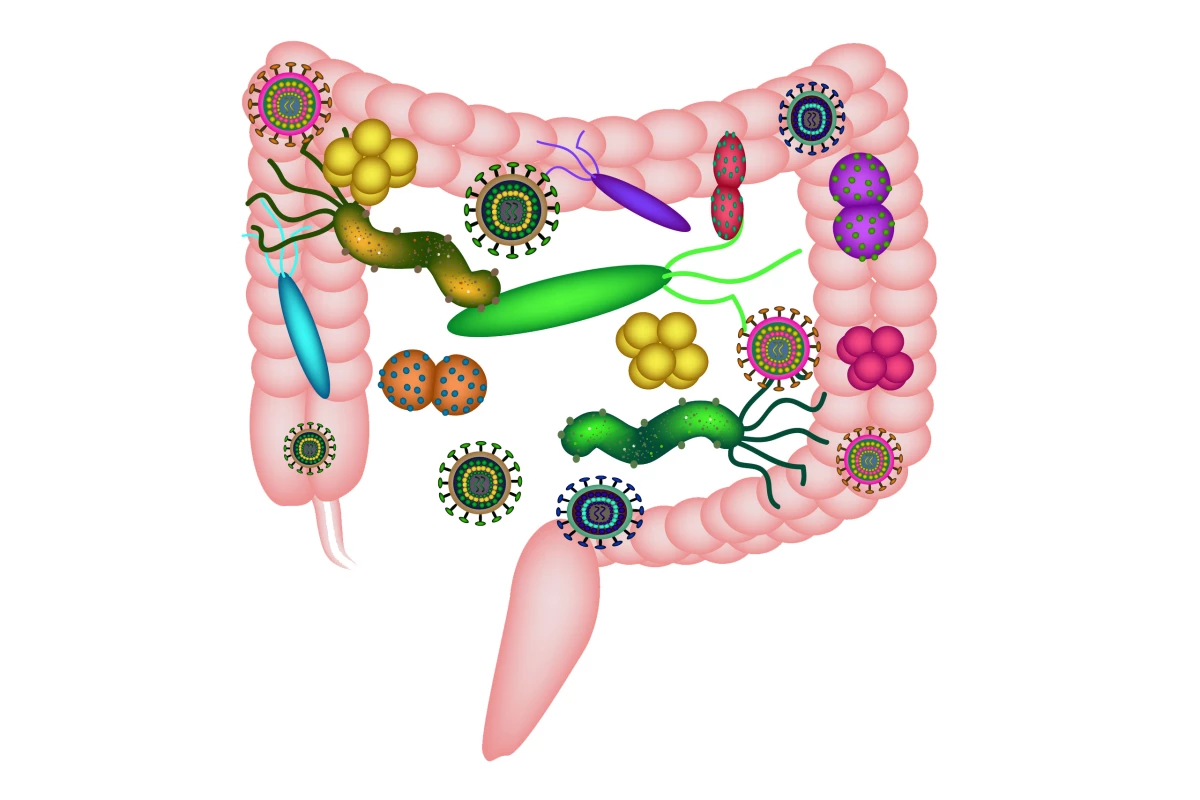For several years scientists have detected links between bowel cancer and the gut microbiome. New research presented at the National Cancer Research Institute (NCRI) conference in Glasgow is now suggesting there may be a causal relationship between a specific type of gut bacteria and an increased risk of bowel cancer.
“Lots of studies in mice and humans have shown an association between the gut microbiome and bowel cancer but very few have provided convincing evidence for causality,” explains Kaitlin Wade, a researcher on the project from the University of Bristol. “In other words, it's really difficult to discern whether components of the gut microbiome can cause bowel cancer, whether the disease itself leads to variation in the gut microbiome or whether the association is due to some other factors that cause variation in both."
The new research evaluated a couple of different datasets looking to home in on particular genetic variants that correlated with bowel cancer. Using a form of statistical analysis called Mendelian randomization designed to reveal causal associations in big data, the research uncovered a genetic variation linked to a specific type of bacteria from the Bacteroidales group that seemed to increase a person’s risk for bowel cancer by up to 15 percent.
"With Mendelian randomization, we use people's natural, randomly inherited genetic variations, which alter levels of bacteria within the gut microbiome in a way that mimics a randomized trial, to see whether people with a different genetic makeup, and therefore different gut microbiome profiles, have a different risk of colorectal cancer," says Wade.
This is not the first research to suggest microorganisms living in our gut are connected with the development of colorectal cancer but this is one of the first to use this particular analytical method to indicate a plausible causal association. Earlier research has also suggested levels of one particular gut bacteria species could be an effective prognostic biomarker for colorectal cancer survival.
It is important to note that this new research has yet to be peer reviewed and published. Plus, it is unclear whether the gene variants identified in the research are driving the increased bowel cancer risk in ways unrelated to the specific gut bacteria. As Wade notes, more research is necessary to understand how these genetic variants are directly altering the gut microbiome.
"We need to classify the exact species or strain of bacteria in the Bacteroidales group, and we need to do more work to understand how and why human genetic variation can alter the gut microbiome,” saws Wade. “Even if these results show that these bacteria may cause bowel cancer, we don't know whether trying to alter them in an effort to reduce the risk of bowel cancer might have other, unforeseen effects on other aspects of health.”
Ian Tomlinson, from the University of Edinburgh, is hesitant to use this research as definitive causal proof of a link between gut bacteria and bowel cancer. However, he does see the study as important in expanding our understanding of how these cancers develop.
"The stability of the gut microbiome is in question and there are complex relationships between the types and numbers of bacteria present, and it is therefore too early to ascribe causality to the findings reported,” says Tomlinson, who did not work on this new study. “Nevertheless, similar larger studies have the potential for greatly improving our understanding of how bowel cancer develops."
The new research was presented at the 2019 NCRI Cancer Conference in Glasgow, UK.
Source: NCRI




